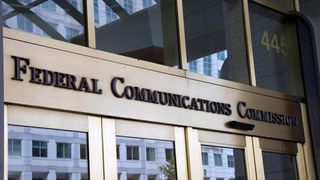Edge Officially Joins Legal Fight Against FCC Net Rule Rollback

Edge providers have officially joined the legal fight against the FCC's rollback of net neutrality rules and its reclassification of ISPs out from under Title II common carrier regs.
The Internet Association--whose members include Amazon, Facebook, Google and Twitter--has petitioned the U.S. Court of Appeals for the Ninth Circuit to allow it to intervene on behalf of challenges filed by others to the rules.
While not a party to the case, an intervenor is allowed to join a case without the parties' permission, though IA said it had contacted both sides (see below) and none had objected to their intervening.
Related: GOP-Led FCC KO's Title II
Without the rules against blocking, throttling or paid prioritization by mobile and fixed broadband providers, without the general conduct standard to handle other possible "interference," and by eliminating FCC oversight of interconnection, they told the court, "internet companies and consumers will have no effective legal recourse against broadband providers that distort competition and impede communication by preventing or discouraging consumers from reaching the online content of their choice."
They called that "particularly problematic insomuch as half the country has "no choice" in high-speed wireline providers, and worse in rural areas where that figure is 87%--ISPs and the current FCC majority would dispute, and have disputed, that definition of "no choice."
Related: ACA Seeks to Ally with FCC in Net Neutrality Fight
Broadcasting & Cable Newsletter
The smarter way to stay on top of broadcasting and cable industry. Sign up below
While ISPs and the FCC Republicans who voted to roll back the rules have said they did so to spur investment and innovation. IA says it does the reverse for its members.
So far, the participants in the case--petitioners, respondents and intervenors--are: Mozilla Corp.; Vimeo, Inc.; Public Knowledge; the Open Technology Institute; the State of New York, et al.; County of Santa Clara, et al.; California Public Utilities Commission; National Hispanic Media Coalition; NTCH, Inc.; Benton Foundation; Free Press; Coalition for Internet Openness; Etsy, Inc.; Ad Hoc Telecom Users Committee; Center for Democracy and Technology; the City of San Francisco; the Federal Communications Commission; and the United States.
"[B]y eliminating the established, judicially approved rules of the road protecting the open internet, the Order removes the legal certainty on which the Internet Association’s members have relied," they said. "To attract investment and growth, online content providers (such as many of the Internet Association’s members) need assurance of a baseline level of nondiscriminatory treatment by all internet service providers."
Contributing editor John Eggerton has been an editor and/or writer on media regulation, legislation and policy for over four decades, including covering the FCC, FTC, Congress, the major media trade associations, and the federal courts. In addition to Multichannel News and Broadcasting + Cable, his work has appeared in Radio World, TV Technology, TV Fax, This Week in Consumer Electronics, Variety and the Encyclopedia Britannica.

